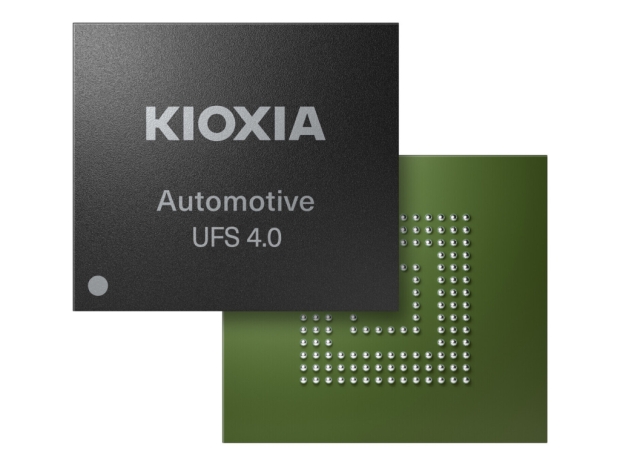According to Kioxia, the new UFS Ver. 4.0 devices will bring over a 100 percent increase in sequential read and over a 40 percent increase in sequential write performance. These new higher-performing devices come in a smaller package size and will power a variety of next-generation automotive applications like telematics, infotainment systems, and ADAS.
Kioxia was keen to note that UFS 4.0 is backward compatible with UFS 3.1. The new UFS Ver. 4.0 devices use Kioxia's own BiCS FLASH 3D flash memory and a controller in a JEDEC-standard package. It also incorporates MIPI M-PHY 5.0 and UniPro 2.0 and supports theoretical interface speeds of up to 23.2Gbps per lane or 46.4Gbps per device. The new devices also support High Speed Link Startup Sequence (HS-LSS) features, which should reduce the time for Link Startup by approximately 70% compared to the conventional method.
Advanced features and functionalities are supported in the new UFS Ver. 4.0 devices to address demanding automotive application requirements, including:
- Refresh Feature: Improves data reliability by refreshing degraded data to prevent data corruption even in the harsh, demanding in-vehicle environment.
- Extended Diagnosis Feature: Enables users to view important information from the UFS device, allowing preventative action to be taken.
- Available in capacities of 128, 256 and 512 gigabytes (GB), the new Kioxia devices support a wide temperature range, meet AEC-Q100 Grade 2 requirements and offer enhanced reliability capabilities that complex automotive applications require.




